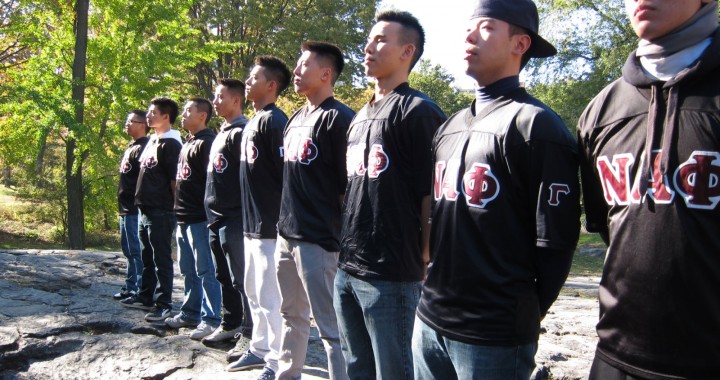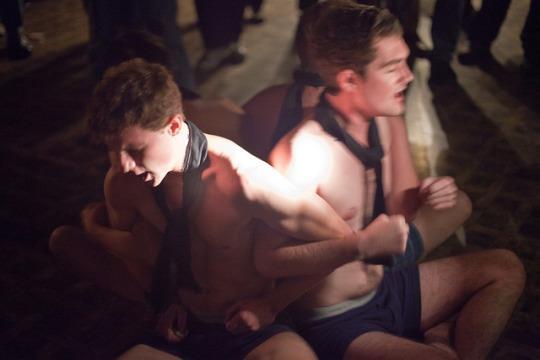PHILADELPHIA, June 8 (UPI) — A former Pennsylvania State University student who first brought attention to a fraternity’s secret Facebook page with photos of nude women has sued the school for “barbaric and life-threatening hazing” he underwent as a pledge.
James Vivenzio, 21, accused the university of dragging its feet for several months after he first told officials about the Facebook page, sexual assault and hazing rituals he observed and experienced as a pledge with Kappa Delta Rho fraternity.
The complaint, filed Monday in the Philadelphia Court of Common Pleas, said that in the fall of 2012 and spring of 2013, Vivenzio underwent hazing as a pledge of the fraternity, including:
“Physical assault and battery including cigarette burns; physically and mentally abusive late-night line-ups that featured force-feeding bucketfuls of liquor mixed with urine, vomit, hot sauce and other liquid and semi-solid ingredients; ‘gladiator’ games that subjected pledges to significant bodily injuries; directing fraternity pledges to guzzle hard liquor without stopping until vomiting was induced (a ‘ritual’ in which fraternity alumni eagerly participated); requiring pledges to spend hours scrubbing floors and to pick up large quantities of garbage that was deliberately strewn about the fraternity house; and to serve as on-call errand-boys and laborers for older members.”
In a statement released Monday, Vivenzio said he “was afraid somebody could die unless the abuse, the Facebook 2.0 site, and all that was going on, were shut down permanently.”
In January, nine months after first approaching university officials, Vivenzio said he told local police about the allegations, which resulted in the school suspending the fraternity for three years.
The national office of Kappa Delta Rho followed suit Monday, expelling 38 members of the Penn State chapter of the fraternity from the organization and suspending the chapter from operating at the university for three years.
The lawsuit alleges “Penn State recklessly and unconscionably sat on the information” Vivenzio gave them, causing further injuries to other students from abusive hazing and sexual misconduct. Vivenzio says he now has post-traumatic stress disorder from the hazing he underwent and had to enter rehab for alcohol abuse.
“Vivenzio hopes to bring attention to the unlawful, disturbing and dangerous hazing and sexual assault that takes place at Penn State and other university and college campuses, as well, and to force defendants to take all necessary steps to stop hazing and sexual assault so as to protect the health and well-being of all students,” the lawsuit says.
Lisa Powers, a spokeswoman for Penn State, said the school disputes Vivenzio’s allegations.
“Our staff offered him extraordinary assistance on numerous occasions, and went to great lengths to do so over the course of nearly nine months — even sending the director of the Office of Student Conduct to their home to interview them,” she said. “Neither he nor his family were willing to file a complaint, provide documentation, speak with State College Police or participate in pursuing the formal disciplinary process available to them, despite repeated encouragement from University staff.
“Mr. Vivenzio also did not inform Penn State staff members of a private Facebook group. University officials became aware of its existence when informed by State College Police in February 2015.”
The lawsuit names Penn State, the national office of Kappa Delta Rho, the school’s chapter of the fraternity, the Penn State Interfraternity Council and the Panhellenic Association, and seeks unspecified compensatory damages.









